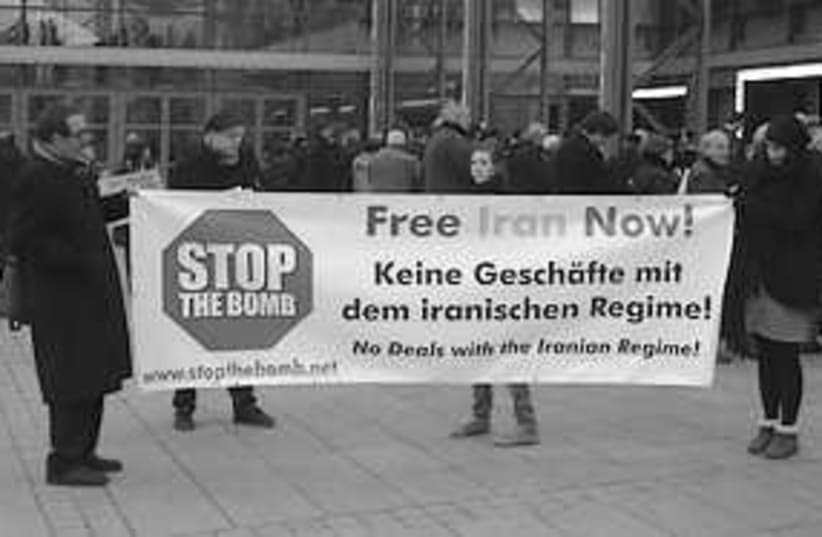German corporations such as ThyssenKrupp have ignored Merkel'spleas to walk away from Iran business as part of her administration'snon-binding "discouragement strategy."
While ThyssenKrupp has declined to disclose the specific natureand scope of its business deals with Teheran, Michael Spaney, a Stopthe Bomb spokesman and critical company shareholder, asked at theannual stockholder meeting if ThyssenKrupp "is certain that itsprojects are not tied to the Revolutionary Guards." According toeconomic experts, the Iranian Revolutionary Guards Corps are thought tocontrol the overwhelming majority of Iran's companies.
Ekkehard D.Schulz, CEO of ThyssenKrupp, replied thatthe company "is not aware of involvement with the Revolutionary Guards"but is "dealing with construction companies" in Iran.
The European Parliament is currently debating a Dutch proposalto place the Revolutionary Guards on the European Union terror list.The Dutch Parliament justified its resolution by citing theRevolutionary Guard's role in violently repressing the Iranianpopulation and financing radical Islamic terror organizations, such asHamas and Hizbullah.
Accordingto ThyssenKrupp spokesman Wilke, subsidiaries of the parent corporationare involved in the "chemical, systems engineering, cement [and]railway" sectors. Uhde and Polysius, both subsidiaries of ThyssenKrupp,are building cement and chemical plants in Iran. ThyssenKrupp delivereda "container ship" to Teheran, said Wilke.
German critics of German-Iranian trade argue thatcompanies in the Federal Republic are repeating their Nazi-eracorporate behavior by launching deals with the regime in Teheran, whichmirrors the eliminationist views of the Hitler movement.
ThyssenKrupp used slave laborers during World War II to advancethe Nazis' war campaign. The firm's president during the Nazi period,Alfried Krupp von Bohlen und Halbach, was convicted of war crimes atthe Nuremberg Trials.
Sebastian Mohr, a Stop the Bomb activist who helped coordinate the protest, told the Post thatthis is "business as usual... A firm that used over 10,000 slavelaborers during World War II... and despite the threats to annihilateIsrael and the permanent denial of the Shoah on the part of Iranianregime, ThyssenKrupp has maintained a close economic relationship withthe Iranian regime for decades."
Ekkehard D.Schulz, CEO of ThyssenKrupp, said regarding the"support of a anti-Semitic and terror regime in Iran, it is notThyssenKrupp's responsibility to issue a statement. That is a functionof the federal government."
The pro-Israel organization Stop the Bomb has employed creativeprotest tactics at stockholder meetings over the years, involving suchheavyweight German and Austrian companies as Siemens, OMV and Linde,which maintain intensive trade relations with Iran. Stock purchases,for example, have allowed Stop the Bomb activists to pose uncomfortablequestions to the top management about the role of German-Iranian tradein undercutting the security of Israel and Europe.
Jannis Stenzel, a Stop the Bomb activist, told the Post thatthe protest revolves around stopping Thyssen's trade with the IslamicRepublic because it financially supports the Iranian regime. The goalof Stop the Bomb is to "weaken the regime" in order to support thepro-democracy movement in Iran and stop the country from attaining anatomic bomb.
